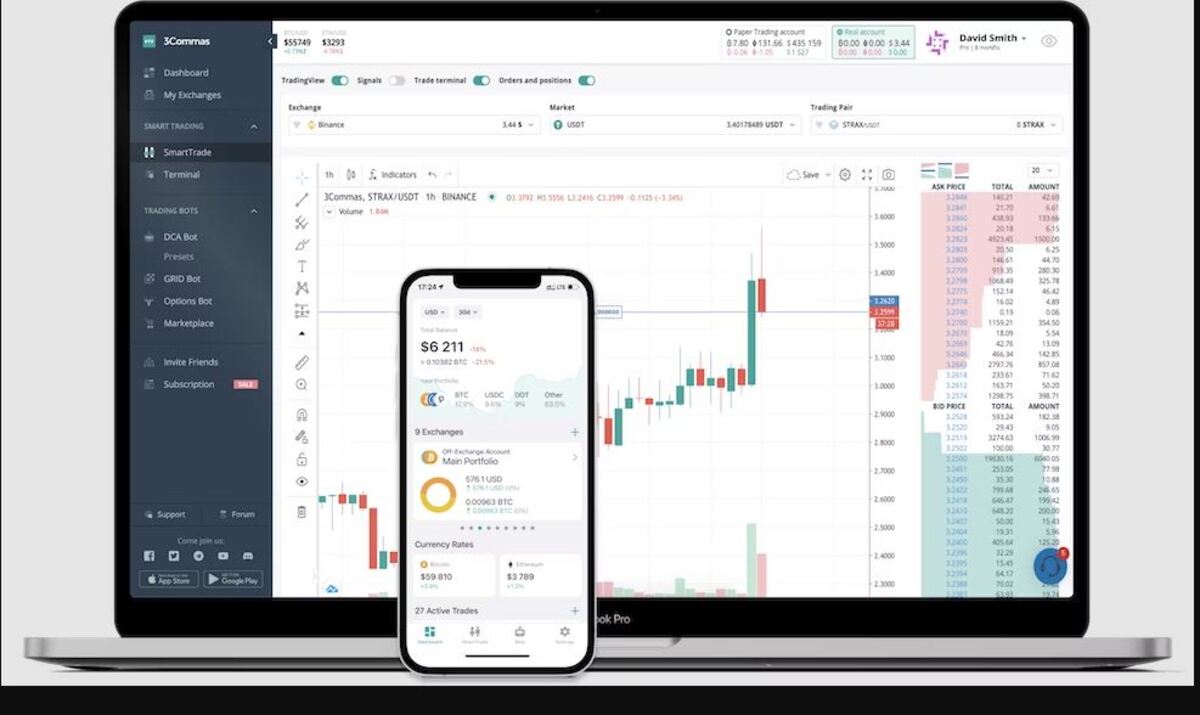Introduction
Welcome to the world of cryptocurrencies, where digital assets like Bitcoin and Ethereum have captured the attention of investors around the globe. As one of the most popular and widely traded cryptocurrencies, Ethereum has experienced significant growth and volatility over the years.
While many cryptocurrency enthusiasts focus on the buying and holding aspect, knowing when to sell Ethereum is equally important. Timing your selling decisions can greatly impact your profitability and financial goals. However, it’s crucial to approach this decision with a strategic mindset rather than letting emotions drive your actions.
In this article, we will discuss various factors you should consider before selling your Ethereum holdings. By evaluating these factors, you can make more informed decisions and mitigate potential risks. Remember, it’s always wise to consult with a financial advisor or do thorough research before making any investment decision.
So, let’s dive into the key factors to consider when deciding whether it’s the right time to sell your Ethereum.
Factors to Consider Before Selling Ethereum
When it comes to selling Ethereum, it’s essential to assess various factors that can impact the profitability and success of your investment. Here are seven crucial factors to consider before making a decision:
- Price Targets and Profit Goals: Determine your desired price targets and profit goals before selling Ethereum. Consider the current market value, your initial investment, and the potential for future price appreciation.
- Market Trends and Analysis: Stay informed about the latest market trends and conduct thorough technical and fundamental analysis. Look for patterns, indicators, and other market signals that may guide your selling decision.
- Project Updates and News: Keep track of project updates, news, and announcements related to Ethereum and its development community. Significant updates or negative news can impact the value of the cryptocurrency.
- Risk Management and Diversification: Assess your risk tolerance and evaluate your overall investment portfolio. Selling Ethereum may be necessary to rebalance your portfolio or mitigate risk if you are heavily exposed to cryptocurrencies.
- Personal Financial Situation and Goals: Consider your personal financial situation, including your current financial obligations, future expenses, and investment goals. Align your decision to sell Ethereum with your broader financial objectives.
- Tax Implications and Legal Considerations: Understand the tax implications of selling Ethereum in your jurisdiction. Consult with a tax professional to ensure compliance with applicable laws and regulations.
- Emotional Factors and Investor Psychology: Emotions can greatly influence investment decisions. Be aware of greed, fear, and other emotional biases that may cloud your judgment. Stick to your strategy and avoid making impulsive selling decisions based on temporary market fluctuations.
By carefully evaluating these factors and considering their impact on your investment, you can make more informed decisions regarding when to sell Ethereum. Remember, it’s essential to stay updated, assess your risk tolerance, and align your selling decisions with your overall financial goals.
Price Targets and Profit Goals
Setting price targets and profit goals is a crucial step in determining when to sell your Ethereum holdings. This involves establishing the desired price level at which you are willing to sell and the profit you aim to achieve.
When it comes to price targets, it’s important to conduct research and analysis to determine a realistic and achievable level. Consider factors such as historical price movements, market trends, and any upcoming events or news that may impact the cryptocurrency’s value. This analysis can help you identify potential resistance levels or price points where Ethereum has historically struggled to surpass.
Profit goals, on the other hand, are determined by your investment strategy and financial objectives. Consider how much profit you want to generate from your Ethereum investment and how that aligns with your overall investment goals. It’s essential to strike a balance between aiming for significant profits and maintaining a realistic approach to market conditions.
Once you have established your price targets and profit goals, monitor the market closely. If Ethereum reaches your price target or exceeds your profit goal, it may be an indication that it’s time to sell. Keep in mind, however, that the cryptocurrency market can be highly volatile, and prices can fluctuate rapidly. Therefore, it’s crucial to be flexible and adapt to changing market conditions.
Additionally, consider employing a trailing stop-loss strategy. With this approach, you set a dynamic selling point that adjusts upward as the price of Ethereum rises. This allows you to capture potential profits while still allowing for further upside if the price continues to increase.
Remember, setting price targets and profit goals is a personal decision and should be based on thorough analysis and consideration of your financial situation and risk tolerance. It’s important to assess the market conditions and adjust your targets accordingly to optimize your profit potential while managing your risk effectively.
Market Trends and Analysis
Keeping a close eye on market trends and conducting thorough analysis is essential when considering selling Ethereum. Understanding the current state of the market and analyzing historical data can provide valuable insights into whether it’s an opportune time to sell.
One crucial aspect of market analysis is technical analysis. This involves studying price charts, patterns, and indicators to identify trends and predict future price movements. Technical indicators such as moving averages, relative strength index (RSI), and Bollinger Bands can help you assess the strength and momentum of Ethereum’s price. By studying these indicators, you can make more informed decisions about when to sell based on potential overbought or oversold conditions.
In addition to technical analysis, fundamental analysis is also critical. This involves evaluating factors such as Ethereum’s underlying technology, development updates, partnerships, and adoption by businesses and institutions. Understanding the fundamental strengths and weaknesses of Ethereum can help you gauge its long-term potential and make informed selling decisions.
It is also essential to stay updated on market news and events related to Ethereum. News regarding regulatory developments, security breaches, technological advancements, or major partnerships can impact the valuation and market sentiment of Ethereum. By staying informed and analyzing the impact of such news on the overall market, you can make better-informed decisions about when to sell your Ethereum holdings.
Furthermore, it is prudent to consider the broader cryptocurrency market conditions. Analyze how other cryptocurrencies are performing, as they can influence and correlate with the price movements of Ethereum. Understanding the interplay between different cryptocurrencies and market trends can provide valuable insights into the potential future trajectory of Ethereum’s price.
Remember, market trends and analysis should guide your decision-making process, but they are not foolproof indicators. Market conditions can change rapidly and unpredictably, so it’s crucial to use a combination of technical and fundamental analysis while considering your own risk tolerance and investment goals.
Project Updates and News
Staying informed about project updates and news related to Ethereum is an integral part of determining when to sell your holdings. The development community and the progress of the Ethereum ecosystem can have a significant impact on its value.
Regularly monitor and assess the updates from the Ethereum development team. Keep an eye on improvements, advancements, and roadmap milestones. Positive updates such as the implementation of new features, enhanced scalability solutions, or increased adoption by developers and businesses can create bullish sentiment and potentially drive up the price of Ethereum.
Conversely, project setbacks, delays, or negative news can adversely affect Ethereum’s value. For example, security breaches, regulatory challenges, or controversies surrounding the project can lead to a decline in market confidence and a drop in price.
It’s critical to dive deep into Ethereum-related news and stay educated about the market sentiment. Follow reliable sources of information such as reputable cryptocurrency news outlets, official announcements from the Ethereum Foundation, and influential social media accounts or industry experts. These sources can provide valuable insights into the current state of Ethereum and its potential future trajectory.
In addition to project updates, pay attention to broader industry news and trends. Developments in the blockchain and cryptocurrency sector as a whole can impact Ethereum’s value. For example, regulatory changes, major partnerships, industry adoption, or technological breakthroughs can have a ripple effect on the entire market, including Ethereum.
Remember, assessing project updates and news requires critical thinking and the ability to distinguish between reliable information and market noise. Not every piece of news may have a significant impact on Ethereum, so it’s important to filter out the noise and focus on developments that truly influence the project’s growth and adoption.
By staying updated with project updates and news, you can make informed decisions about when to sell your Ethereum holdings based on the overall health and progress of the Ethereum ecosystem.
Risk Management and Diversification
When considering selling Ethereum, it’s essential to prioritize risk management and evaluate your overall investment portfolio. Proper risk management and diversification can help protect your investment and mitigate potential losses.
Ethereum, like any investment, carries inherent risks. Its price can fluctuate dramatically, and the cryptocurrency market is highly volatile. Therefore, it’s crucial to assess your risk tolerance and determine the appropriate allocation of Ethereum in your portfolio. Selling Ethereum may be necessary if you find that you are overexposed to cryptocurrencies or if your risk tolerance has changed.
Diversification is an effective risk management strategy. It involves spreading your investments across different asset classes, industries, and geographic regions. By diversifying, you reduce the impact of a single investment on your portfolio’s performance. Consider diversifying not only within the cryptocurrency market but also by including traditional assets such as stocks, bonds, or real estate.
Regularly evaluate your investment allocations and rebalance your portfolio as needed. If your Ethereum holdings have grown significantly and are now a large proportion of your overall portfolio, selling a portion of your holdings may be prudent to maintain the desired level of portfolio diversification.
Additionally, consider employing stop-loss orders as a risk management tool. These orders automatically sell your Ethereum holdings if the price reaches a predetermined level, limiting potential losses. Stop-loss orders can help protect your investment from sharp price declines, especially during periods of heightened market volatility.
Remember, risk management and diversification are essential components of a well-rounded investment strategy. Selling Ethereum may be necessary to maintain a balanced and diversified portfolio and safeguard against potential losses. Regularly reviewing and adjusting your investment allocations can help you adapt to changing market conditions and reduce risk.
Personal Financial Situation and Goals
When deciding when to sell Ethereum, it’s crucial to consider your personal financial situation and goals. Your individual circumstances will play a significant role in determining whether selling your Ethereum holdings aligns with your overall financial objectives.
Assess your current financial situation, including your income, expenses, and any outstanding debts or financial obligations. If you are in a stable financial position and have met your short-term financial goals, you may consider selling Ethereum to realize profits or rebalance your investment portfolio.
Furthermore, evaluate your long-term financial goals. Determine whether your investment in Ethereum aligns with those goals. For example, if you are saving for a down payment on a house or planning for retirement, selling Ethereum may help you achieve those objectives.
Consider your time horizon for investing. If you have a longer time horizon and can afford to hold onto your Ethereum for an extended period, you might consider waiting before making a selling decision. On the other hand, if you have a shorter time horizon or an immediate need for funds, selling Ethereum may be a more suitable choice.
It’s important to take into account your risk tolerance and comfort level with market volatility. If you find yourself becoming overly anxious or stressed due to the swings in the cryptocurrency market, selling Ethereum may bring peace of mind and help you avoid emotional turmoil.
Ultimately, aligning your selling decision with your personal financial situation and goals is crucial for making informed investment choices. Regularly reassess your financial objectives and adjust your Ethereum holdings accordingly to ensure your investments support your overall financial well-being.
Tax Implications and Legal Considerations
Before selling Ethereum, it’s essential to understand the tax implications and legal considerations associated with such transactions. Failing to comply with tax obligations or legal requirements can lead to financial penalties or legal trouble. Here are some key factors to consider:
Tax regulations: Cryptocurrency taxation laws can vary across jurisdictions. Educate yourself about the tax laws in your country or region to ensure you are aware of your obligations. Understand how the sale of Ethereum will be classified for tax purposes, whether it’s considered a capital gain, income, or another taxable event.
Reporting requirements: Determine the required documentation and reporting obligations for selling Ethereum. Familiarize yourself with the necessary forms and reporting deadlines. Keep track of your cryptocurrency transactions, including the purchase date, sale date, and income generated, to accurately report your gains or losses.
Professional advice: Consult a tax professional or accountant experienced in cryptocurrency taxation. They can provide guidance on your specific tax situation and help you navigate the complexities of cryptocurrency taxation. Seek their advice to ensure you comply with the applicable tax laws and optimize your tax position.
Legal compliance: Understand the legal aspects surrounding the sale of Ethereum. Be aware of any regulations, restrictions, or obligations imposed by your country or region regarding the trading and selling of cryptocurrencies. Comply with anti-money laundering (AML) and know-your-customer (KYC) requirements, if applicable.
Record-keeping: Maintain detailed records of your Ethereum transactions. This includes information such as purchase prices, sale prices, transaction fees, and any other relevant details. Accurate and organized records will be essential for tax reporting, audit purposes, or any legal inquiries.
International considerations: If you are selling Ethereum across international borders, be aware of any specific regulations or requirements that may apply. Different countries may have differing tax and legal frameworks for cryptocurrency transactions.
Remember, tax implications and legal considerations are paramount when selling Ethereum. Failure to comply with tax laws or legal requirements can result in financial consequences. Ensure you are well-informed and seek professional advice to ensure compliance and protect yourself legally.
Emotional Factors and Investor Psychology
Emotions play a significant role in investment decision-making, and selling Ethereum is no exception. Understanding and managing your emotional factors and investor psychology can help you make rational decisions that align with your investment strategy. Here are some important points to consider:
Greed and Fear: Greed and fear are two powerful emotions that can heavily influence your decision to sell Ethereum. Greed may tempt you to hold onto your Ethereum for longer, hoping for bigger gains, while fear may push you to sell prematurely during market downturns. Recognize and manage these emotions, staying focused on your investment goals and maintaining a rational mindset.
Confirmation Bias: Confirmation bias is the tendency to seek out information that supports your existing beliefs or biases. When considering whether to sell Ethereum, be mindful of not falling into this trap. Seek a balanced perspective by considering diverse viewpoints and conducting thorough research instead of solely focusing on information that confirms your preconceived notions.
Loss Aversion: Loss aversion refers to the tendency to feel the pain of losses more strongly than the joy of gains. When the price of Ethereum declines, you may be reluctant to sell, hoping for a rebound to avoid realizing the loss. Understand that holding onto an asset solely to avoid a loss can be detrimental to your overall investment strategy. Evaluate the current market conditions objectively and consider whether holding or selling is the most rational decision.
Patience and Impatience: Patience is a virtue in investing. It’s important to have a long-term perspective and not be swayed by short-term market fluctuations. However, there is a fine line between patience and impatience. Be aware of impatience-driven actions that may cause you to sell prematurely. Stay disciplined and stick to your investment strategy, avoiding knee-jerk reactions to every market movement.
Seeking Professional Guidance: Emotions can cloud your judgment when it comes to financial decisions. If you struggle to manage your emotions or feel overwhelmed, consider seeking professional guidance from a financial advisor or investment coach. These professionals can provide objective insights and help you navigate the emotional aspects of investing in cryptocurrencies like Ethereum.
By being aware of emotional factors and understanding investor psychology, you can make more rational and informed decisions about when to sell Ethereum. Strive to maintain a balanced mindset, focus on your investment goals, and seek strategies to manage your emotions effectively.
When to Sell Ethereum: Scenarios and Guidelines
Deciding when to sell Ethereum requires careful consideration of various factors. While the ultimate decision may vary depending on individual circumstances, here are some scenarios and guidelines to help you determine the opportune time to sell:
Reaching Profit Targets: If Ethereum has reached your profit targets, it may be a good time to sell. Evaluate your initial investment, desired returns, and consider taking profits to secure your gains.
Market Downturns: During significant market downturns or extended bearish periods, you may consider selling Ethereum to minimize losses or reallocate your investment. However, evaluating the market cycle and potential recovery is crucial before making a selling decision.
Risk Management: As part of a risk management strategy, consider selling Ethereum if you are overexposed to cryptocurrencies or if your investment portfolio requires rebalancing. Diversification and managing risk across different asset classes can help protect your overall investment.
Major News or Events: Significant positive or negative news and events related to Ethereum can impact its price. Evaluating the potential impact of such news and its long-term implications can help guide your selling decision.
Upcoming Milestones: If Ethereum is approaching significant milestones, such as network upgrades or major development releases, it may be worthwhile to hold onto your investment until these events unfold. These milestones could potentially lead to increased market activity or positive price movements.
Unexpected External Factors: Unforeseen events such as regulatory changes, security breaches, or unexpected market conditions can influence the value of Ethereum. If such factors significantly affect the cryptocurrency’s long-term prospects, selling may be a prudent choice.
Personal Circumstances: Your personal circumstances and financial goals should also guide your selling decision. If you have specific financial needs, such as funding a major purchase or meeting a financial obligation, selling Ethereum can provide liquidity to meet those requirements.
Regular Evaluation: Regularly evaluate your investment portfolio and consider reviewing your Ethereum holdings at predetermined intervals. This allows you to reassess market conditions, project developments, and your financial objectives to make informed selling decisions.
Remember, these scenarios and guidelines are meant to serve as a guide, and the decision to sell Ethereum should be based on a combination of factors specific to your situation. It’s essential to conduct thorough research, seek professional advice if needed, and carefully consider your investment goals and risk tolerance before making any selling decisions.
Conclusion
Knowing when to sell Ethereum is a critical aspect of managing your investment and maximizing potential profits. By considering the various factors discussed in this article, you can make informed decisions that align with your financial goals and risk appetite.
When determining the right time to sell Ethereum, it’s important to set price targets and profit goals, monitor market trends and analysis, stay updated with project updates and news, manage risk through diversification, consider your personal financial situation and goals, understand tax and legal implications, and be aware of emotional factors and investor psychology.
By setting realistic price targets and profit goals, and regularly reassessing them, you can make well-timed selling decisions. Staying informed about market trends, project updates, and news allows you to evaluate the broader context and make decisions based on a balanced perspective.
Incorporating risk management and diversification strategies helps protect your investment and optimize your portfolio. Taking into account your personal financial situation and goals ensures that your selling decision aligns with your broader financial objectives.
It is crucial to understand the tax implications and legal obligations associated with selling Ethereum, as non-compliance can lead to financial penalties and legal consequences. Lastly, managing emotional factors and investor psychology helps you make rational decisions based on sound analysis rather than impulsive reactions to market movements.
As with any investment decision, remember that the cryptocurrency market is highly volatile and unpredictable. Continuously monitor market conditions, seek professional advice if needed, and adapt your selling decisions based on evolving circumstances.
Ultimately, the decision of when to sell Ethereum is a personal one. Consider your risk tolerance, investment goals, and market insights to make informed choices that are aligned with your financial aspirations. By applying a thoughtful and strategic approach, you can optimize your returns and navigate the ever-evolving landscape of cryptocurrency investments.

























